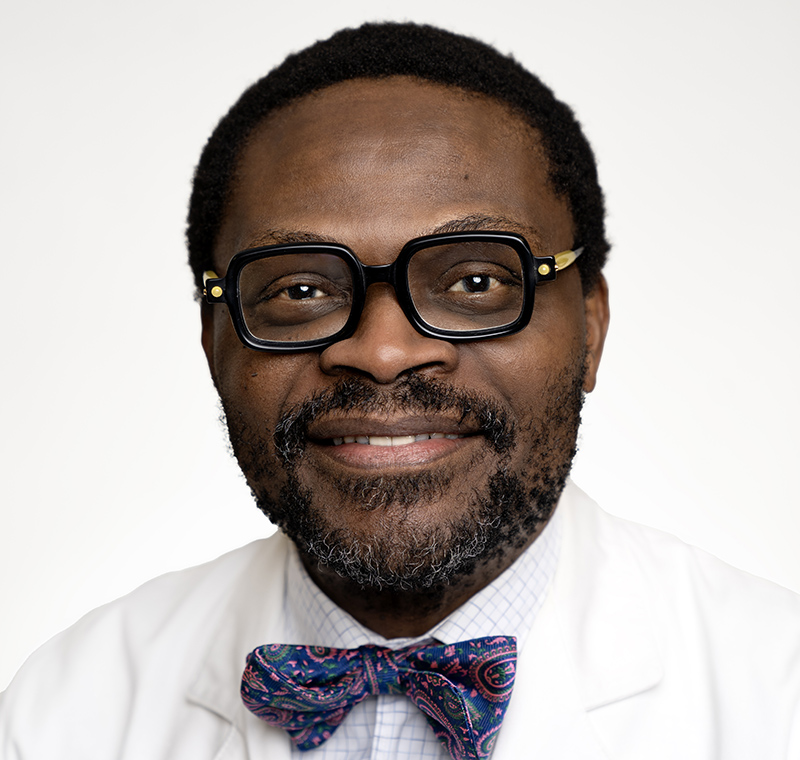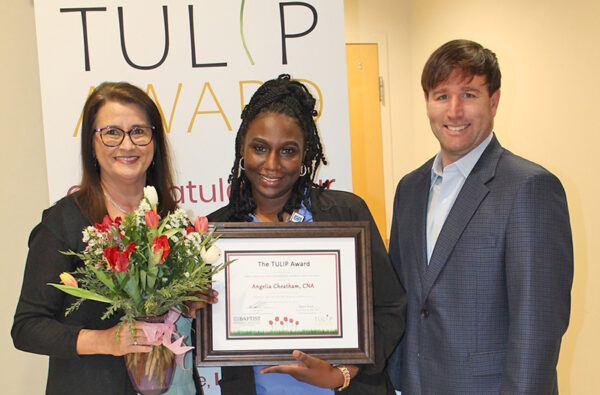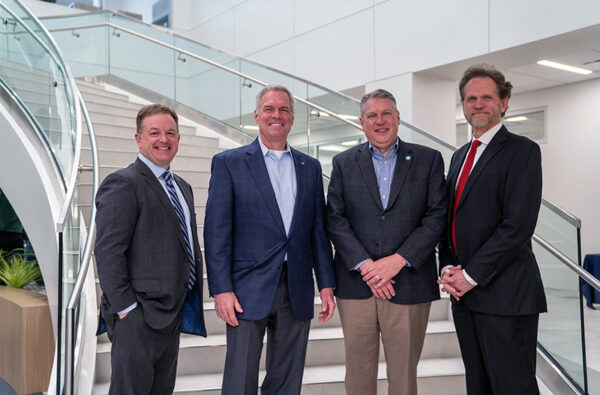Dr. Raymond Osarogiagbon, the chief scientist for Baptist Memorial Health Care/director of the Multidisciplinary Thoracic Oncology Program and the Thoracic Oncology Research Group for Baptist Cancer Center, led the team that conducted research on the inequity of biomarker testing for lung cancer patients. The research was published on Monday, June 17, in Cancer Epidemiology, Biomarkers & Prevention, a journal of the American Association for Cancer Research.
“Baptist Cancer Center research has identified the need to advocate for standardized processes to ensure all patients benefit from advancements in biomarker-directed therapies,” said Dr. Osarogiagbon. “Our research highlights the influence of institution- and provider-level factors on biomarker testing rates, and we want this research to help us move toward equity in biomarker testing so optimal treatment options can be provided to all patients.”
Biomarker testing determines the presence of a particular protein or gene mutation in a person’s lung cancer. It is a vital early step in matching a patient to the right treatment at the right time.
Researchers with the Thoracic Oncology Research Group at Baptist Cancer Center and the University of Memphis School of Public Health examined the pattern of testing for the Epidermal Growth Factor Receptor (EGFR) gene mutation and Programmed Death-Ligand 1 (PD-L1), two specific biomarkers that identify patients who benefit from specific, life-saving additional treatments after surgery to cure lung cancer. These tests are now recommended as part of the standard of care, based on large clinical trials published in 2020 and 2021.
The researchers examined the prevalence of testing in the Mid-South Quality of Surgical Resection cohort, a National Cancer Institute-funded observational study involving patients who had surgery to cure lung cancer at 12 hospitals in the Mid-South from 2018 to 2022. Baptist Cancer Center and the University of Memphis School of Public Health have collaborated to study this cohort for the past decade.
Testing was significantly less common in non-teaching hospitals, non-Commission on Cancer-accredited institutions and surgeries performed by cardiothoracic or general surgeons, as opposed to dedicated thoracic surgeons.
“The good news is testing rates are rising from 11% to 38% for EGFR and 8% to 20% for PD-L1, and there were no differences on the basis of patient characteristics, such as age, sex, race, smoking history or health insurance,” said Dr. Osarogiagbon. “The bad news? There were big differences in biomarker testing rates between institutions and providers.”
The Baptist Cancer Center study established institutions and providers, not patients, as prime targets for eliminating inequities in biomarker testing, and now Baptist Cancer Center is seeking to close the quality gap through program-based care, which will help to standardize practices for testing throughout Baptist Memorial Health Care.






